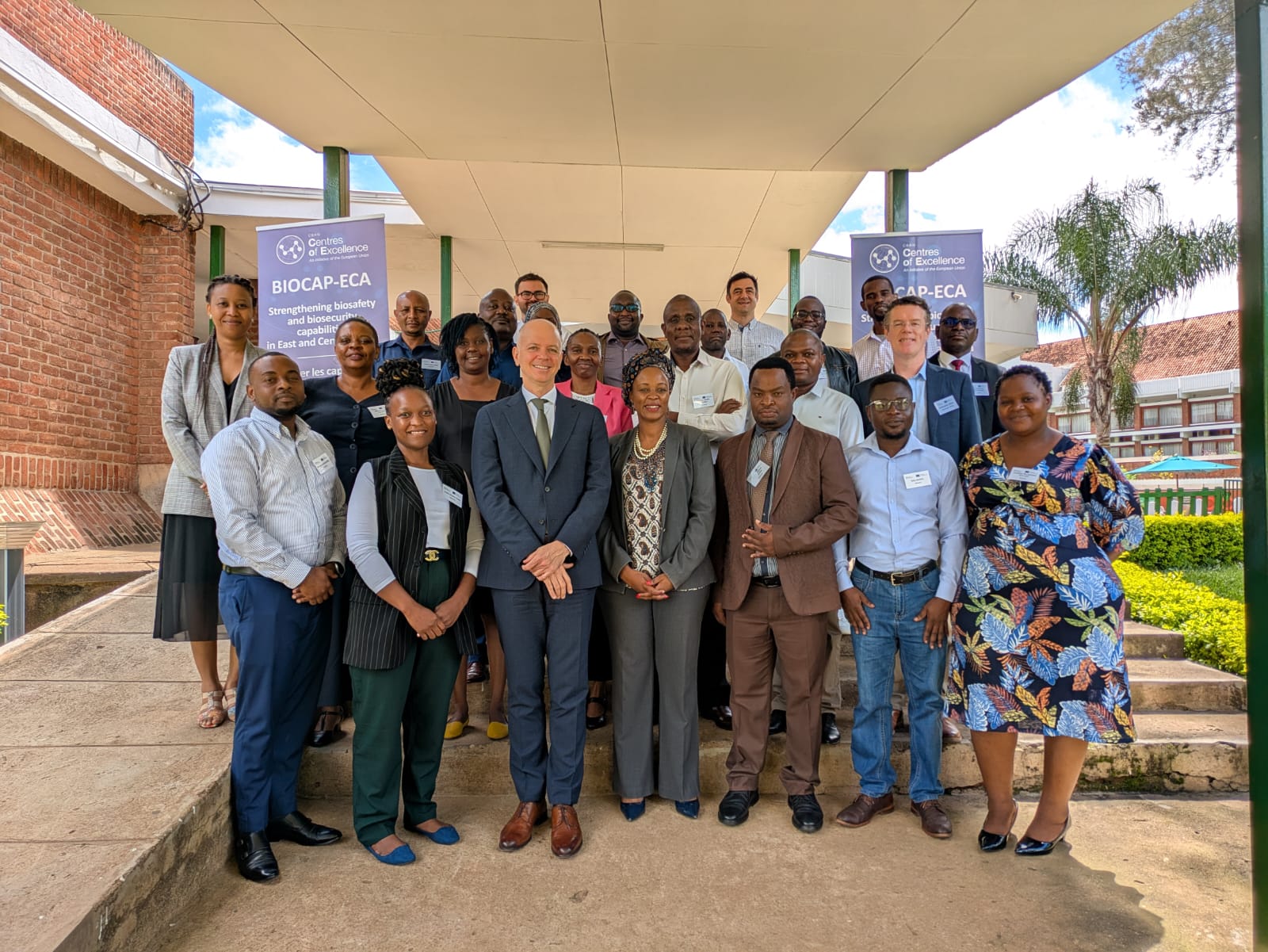
The safe handling and disposal of biological waste are critical to preventing the accidental or deliberate spread of infectious agents. In resource-limited settings, inadequate waste management practices can amplify public health risks and undermine efforts to safeguard both human and environmental health. In this context, strengthening national capabilities in biological waste management is an essential element of effective biosafety and biosecurity systems.
To help address this challenge, the European Union is supporting tailored capacity-building efforts that bring together professionals from health, agriculture, and environmental sectors. These efforts aim to ensure safe and secure practices when dealing with infectious and biological materials, including during emergency response situations.
Cross-border training to improve waste management practices
From 31 March to 4 April 2025, over 30 participants from Malawi and Tanzania took part in a specialised train-the-trainer workshop on biological waste management and incident response in Lilongwe, Malawi. The training focused on managing infectious waste across laboratories, hospitals, and other high-risk facilities, an often-overlooked but vital component of biosafety systems.
The workshop brought together biosafety officers, laboratory technicians, hospital staff, and government officials to develop both technical and pedagogical skills. Through practical demonstrations and scenario-based exercises, participants explored key topics such as risk assessment, decontamination procedures, waste segregation, and emergency planning. The training was delivered by a multidisciplinary team of experts from SCJS Europe, the UK Health Security Agency (UKHSA), and the University of Liège.
To promote regional cooperation, the event facilitated peer exchange and laid the foundation for ongoing collaboration. Participants created a cross-border communication group to stay connected and support each other in their professional roles.
The Head of the European Union Delegation to Malawi attended the closing of the first training session, reaffirming the EU’s long-term commitment to supporting biosafety and biosecurity efforts in the region.
Strengthening biosafety and biosecurity capabilities in East and Central Africa
This activity was conducted under Project 99 BIOCAP-ECA 'Strengthening Biosafety and Biosecurity capabilities in East and Central Africa', in the framework the EU CBRN Centres of Excellence Initiative. Funded by the European Union, BIOCAP-ECA supports 11 countries in the region in strengthening their national biosafety and biosecurity systems, namely: Burundi, Democratic Republic of the Congo, Ethiopia, Ghana, Kenya, Malawi, Rwanda, Seychelles, Tanzania, Uganda, Zambia.
Launched in 2023, the project aims to enhance partner countries’ capacities to detect and respond to biological threats — whether naturally occurring, accidental or deliberate — by providing technical assistance, training, and strategic guidance. The project promotes a multisectoral approach, bringing together human and animal health, environmental, and security stakeholders to ensure comprehensive risk mitigation.
The project is implemented by a consortium led by Expertise France, and comprised of Liège University, RIVM, SCJS Europe and ISEM Institute. To learn more about the project, please visit the CoE Project 99
The EU CBRN CoE Initiative, funded and implemented by the European Commission with the support of the United Nations Interregional Crime and Justice Research Institute (UNICRI), represents the largest global programme on CBRN risk mitigation with 60 partner countries cooperating in advancing sustainable CBRN policies and practices. To learn more about the Initiative's support in Eastern and Central Africa, please visit the Regional Secretariat page

Details
- Publication date
- 22 April 2025
- Authors
- Service for Foreign Policy Instruments | Joint Research Centre
- CBRN areas
- Bio-safety/bio-security
- Public health impact mitigation
- Safety and security
- Waste management
- CBRN categories
- Biological
- CoE Region
- ECA - Eastern and Central Africa
